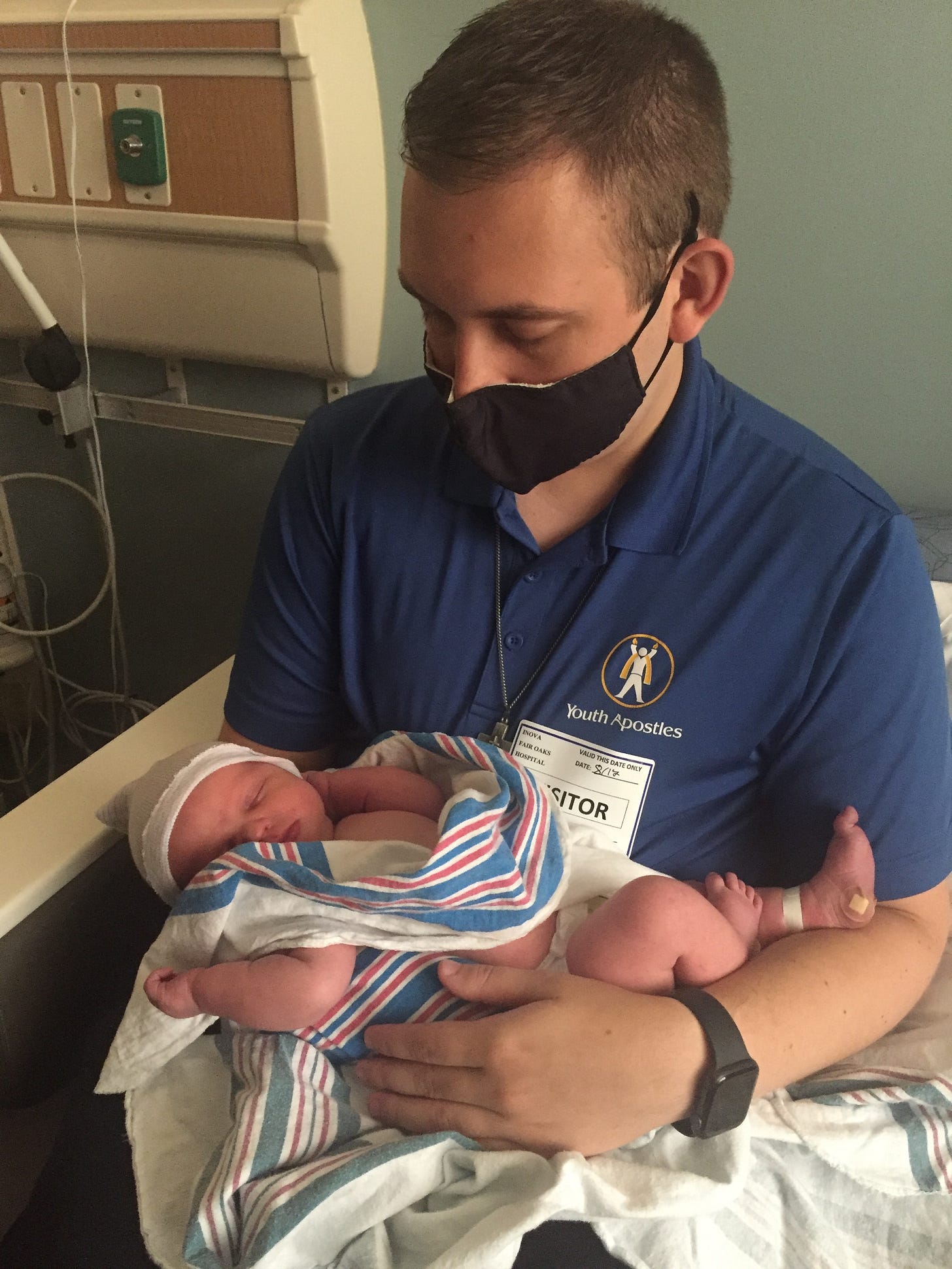Small Update from Jim
Dear friends and family,
Apologies for it being so long since I reached out! I am now fairly settled here at Mount St. Mary’s seminary for my third of twelve semesters (just nine more to go after this one!).
For this small update, I wanted to share with you a little bit about each course that I am taking this fall. Since I am still considered a pre-theologian, most of my courses are heavy on philosophy as they have been in the two semesters prior. This is because the Church desires that her priests have an intellectual foundation upon which they build their understanding of theology. The Church is wise to prepare her ministers to provide both philosophical and theological reasons for the doctrines that she transmits.
Metaphysics (3 credits)
Metaphysics (meaning literally from ancient greek “after physics”) is the science of things transcending what is physical or natural. The overall purpose of this course is to investigate the dominant metaphysical tradition in Western intellectual history, that of Aristotle, especially as understood by St. Thomas Aquinas. The beauty of this course is that I get to spend a significant amount of time wrapping my head around metaphysical concepts such as substance, accident, form, potency, act, and essence, to name a few. Understanding concepts like these will help me to articulate that there are intelligible ways to show that there truly is something beyond the physical world that most of us are deeply familiar with. Combating ideas such as materialism or scientism will be an important ministerial tool in the priesthood.
Biblical Greek (3 credits)
In the time of Jesus, Greek was the most common language in the middle east. As such, we know from the Gospels that Jesus would have spoken Greek often if not most of the time. Furthermore, the writers of the new testament wrote entirely in this ancient language. Possessing a familiarity with the basics of ancient Greek, especially in reading from original biblical documents, will be of great assistance in reflecting on Sacred Scripture. Particularly, I am pleased to be learning to grasp the ancient meaning intended by the New Testament’s authors and to one day incorporate that understanding into homilies and theological presentations.
Celibate Witness & Introduction to Theology of the Body (0 credits)
This 0-credit weekly seminar is part of the program for priestly formation at the Mount. Each week, we learn the value and beauty of the celibate life and come to appreciate the many ways to live celibacy as a way to love as a spiritual father in the priesthood.
Truth & Beauty (2 credits)
This course seeks to explore the theoretical and especially practical implications of the interrelationship between truth, goodness, and beauty. So far, this course has proven to be my favorite among all of my other courses. I look forward to every lecture. The professor has promised to not focus our lessons on what things may or may not be beautiful, but rather he will teach us the foundations of why and how human beings find and understand beauty. I hope to share more of what I learn in this class with all of you throughout the semester.
Modern Philosophy (3 credits)
The years 1600-1900 AD saw rapid change in European philosophy. Intellectual life changed with the dawn of movements such as the scientific revolution, industrialization, and the Enlightenment. This period of philosophical thinking is known as the “Modern” age of philosophy. The course examines the decline of Scholasticism, the origins of modernism in the thought of Bacon, Descartes, and Pascal, its development through rationalism and empiricism, modernity’s climax in the systems of Kant and Hegel, the undermining of modernity in the work of its critics (such as Nietzche), to what degree modernity has been superseded, and its influence and relevance for us today. In particular for me, I am very interested to see modern philosophy’s connection to today’s popular agnosticism and the culture’s disregard for religion.
Natural Theology (3 credits)
Natural theology examines the truths about God that can be known through reason alone. It focuses principally on its explanation according to St. Thomas Aquinas. However, our professor plans to discuss some more contemporary approaches to natural theology in addition to the Thomistic approach. The content of this course is essential to defending religion (and the search for the divine in general) as a fundamentally rational enterprise. Particularly, young people so often have questions that deal with the questions examined under this subject. I hope it will be useful to my ministry with them.
Musical Formation (1 credit)
This 1-credit course covers the history and development of sacred and liturgical music. In addition, we will learn some vocal techniques, musical notation, and liturgical practices in regards to music in the Catholic Church.
Your prayerful and financial support helps make these courses possible for me at the Seminary. I have you to thank for the education that I have received so far. I am grateful to God for all the wonderful friends and family he has sent to me.
A quick change in subject: Recently, I got to welcome a new member of the family into this world! My sister Melyssa delivered her third baby boy last month. I was there at the hospital the day after baby Morgan was born and got to hold him for the first time. I was struck by the dual reality of beauty and vulnerability in human life. I am excited to get to be an uncle a seventh time for a new nephew!
I have a few prayer requests:
For the continued growth and fruitfulness of Youth Apostles.
For the unity of the Church under the Holy Father, Pope Francis.
For my sister Melyssa’s newborn baby, Morgan Hazen Hood.
Peace,
Jim Harbour, Y.A.


